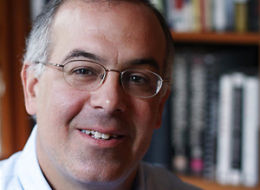Gabriele Munter (German Expressionist painter, 1877--1962) This is not a reading recommendation. I thought you might want to look a little before thinking, reflect on what's out there.
| Gabriele Munter, Breakfast of the Birds, 1934 National Museum of Women in the Arts |

Four Seasons in Rome by Anthony Doerr.
(I recently received this book in the mail from my friend Helen who included a postcard featuring the Gabriele Munter image above.)
This slim volume documents Doerr's year living in Rome as a recipient of the Rome Prize from the American Academy of Arts and Letters. He moves to Rome with his wife and six-month-old twin sons and tries to write fiction, sleep through the night, and negotiate to quirks and vagaries that make Rome so alive and vivid. Four Seasons is a first-person memoir that reads as though he's written each chapter on the spot. If you've been to Rome you'll recognize the pace and amazement of the city. If you haven't, you'll feel as though you haven't ever been somewhere so compelling.
This smart fiction book, one of the most affecting I've read in a long time, is a novel. It's not memoir at all. But Phillips writes it as though it is pure memoir. The first person narrator is named Arthur Phillips and it's about growing up with a con artist for a father, a brilliant twin sister, and a family obsession with Shakespeare. It's written in "memoir language" that shows the narrator thinking aloud, wrestling with his subject, re-creating scenes and dialogue. He reflects about his own reflections--in a good way. The tone is very relaxed, the narrator completely at home with composing a life story. Here's the question: Is that tone possible in authentic memoir?
"How to Write How-To" by Augusten Burroughs, a review of his own book, This Is How.
This review reads as though it's a truncated essay rationalizing how and why Burroughs is writing a How To book. He talks about the importance of people striving to "find a deeper honesty with themselves when assessing their lives [to] resolve common psychological issues."
 |
| Illustration by Joon Mo Kang, New York Times |
In the process he provides a new explanation of the source of self confidence, certainly a quality writers need. Burroughs believes that self confidence is not a quality the apparently self confident achieve. Instead it's a trait that manifests as the absence of a destructive habit of thought. Here's Burroughs explanation:
"The typical advice for gaining confidence--being better at what you do--is wrong; one can be inept yet confident (a frightening common human condition, I've found). I theorize that confidence isn't something you feel internally, but rather a trait others ascribe to you when you're focused and comfortable with what you're doing. So you don't need more confidence. You need less of something you already have in excess: caring what other people think about you. Concentrate on the thing you're doing, not on what people are thinking as you do it and they'll perceive you as confident."
Read, read, read and enjoy.
~~~
There is still room in my next workshop, to be held in Sommieres, in the South of France, October 14--20. Consider it a gift to yourself of sufficient time to devote to thought, the written word, and renewal.
















